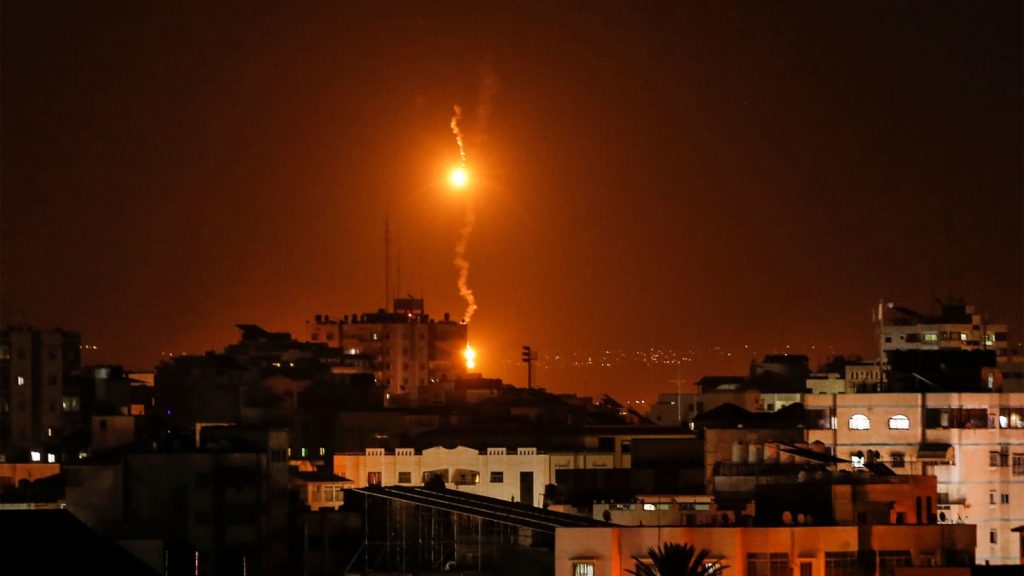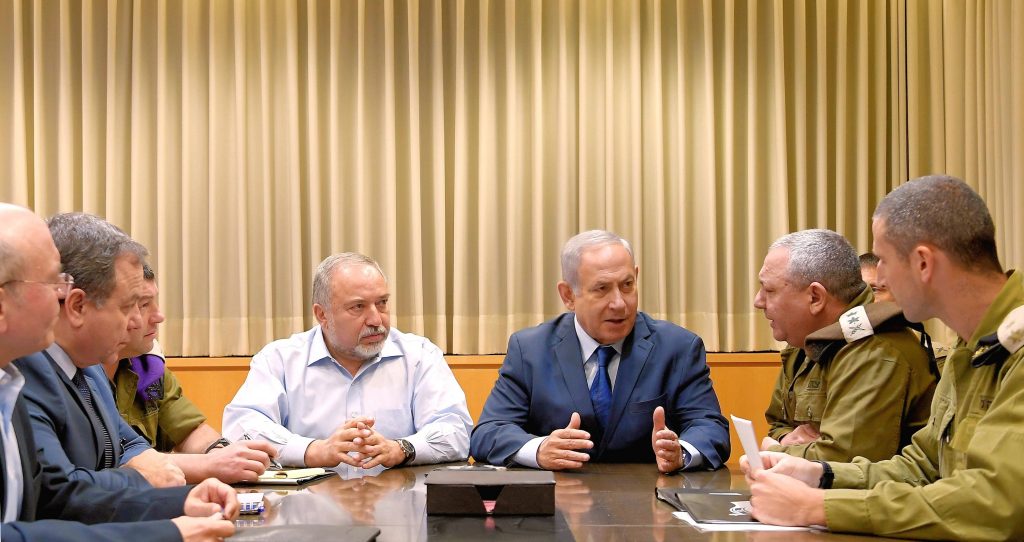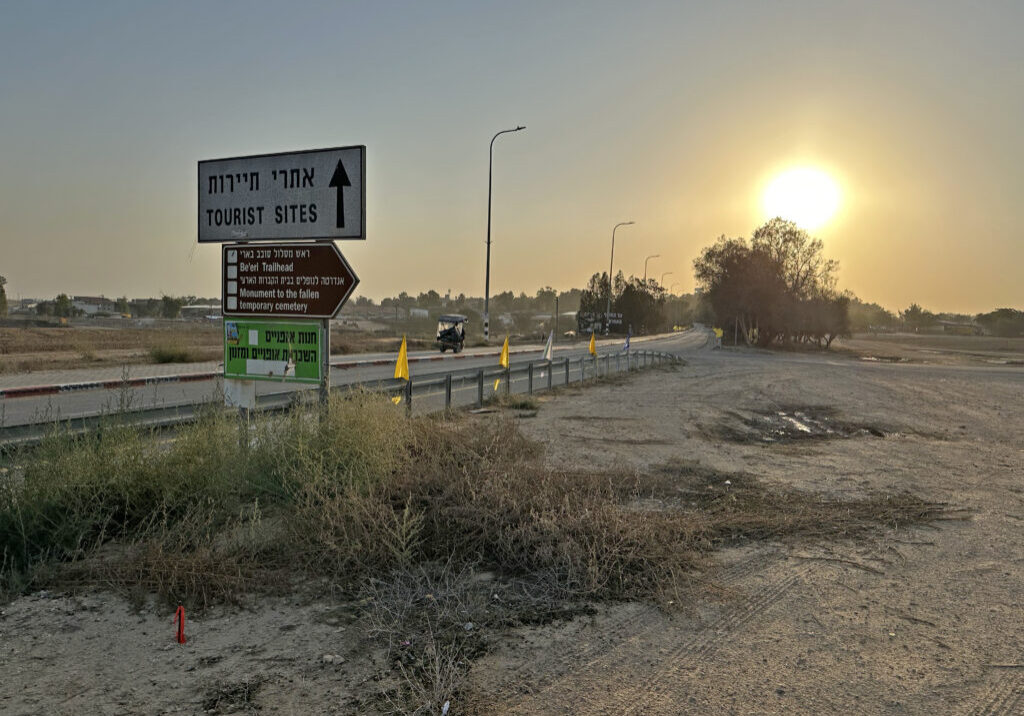Australia/Israel Review
Rockets and resignations
Nov 27, 2018 | Amotz Asa-El

For Avigdor Lieberman, Israel’s veteran populist politician, it was one ceasefire too many.
“The truce constitutes surrender to terror,” the Defence Minister said as he announced his resignation, referring to the Nov. 14 deal that ended 48 hours of violence, including large-scale rocket and missile fire by Hamas and intense IDF air strikes in retaliation.
With 460 rockets and mortars fired at southern Israel beginning November 11, mostly at the coastal city of Ashkelon immediately to Gaza’s north, Lieberman demanded an all-out offensive, with the apparent aim of eradicating Hamas, which uses Gaza’s two million inhabitants as its human shields.
The outspoken hawk who, prior to becoming defence minister, vowed that as defence minister he would give Hamas leaders 48 hours to heed Israeli demands or be killed – had now been in his job for two-and-a-half years, but had never fulfilled his threat. From his point of view, this was the time to show that ultimately he delivers on his promises.
However, when he made his demand in the security cabinet he was overruled by Prime Minister Benjamin Netanyahu and most of that 11-person forum, which adopted the recommendation of the IDF, Mossad, National Security Council and Shin Bet secret service to agree to halt Israel’s fire and strike a ceasefire deal.
The deal, brokered by Egypt, had been in the making for several weeks, and already resulted in the arrival in Gaza of US$15 million delivered by Qatar, via Israel, in bills stacked in bulky suitcases. The money was intended for salaries for Hamas’ employees.
More broadly, the infusion was part of a quest shared by Israel, Egypt and the Gulf states, to help jumpstart Gaza’s economy and hopefully encourage quiet, by channeling foreign investment to its power station, water supply infrastructure, and sewage treatment systems.
Israel agreed to allow such financial infusions in return for Hamas halting the violent disturbances it instigated along the border fence since last March – including large-scale incendiary kite and balloon attacks into southern Israel – and ending its rocket attacks on Israeli towns, which in October had totalled 38 rockets.
However, the truce dynamic was disrupted unexpectedly by an Israeli undercover operation within the Gaza Strip that went awry.
Having clandestinely crossed the border on the night of 11 November, an Israeli special forces’ squad in a civilian vehicle was exposed at a Hamas roadblock. In the consequent exchange of fire an IDF Lt-Col, identified only as M., was killed and another officer was wounded. The Israeli squad killed seven Hamas combatants, including a battalion commander, before retreating with its casualties and being whisked into Israel by IAF helicopters.
The IDF did not explain what the squad’s assignment was, but denied it intended to kill anyone – a claim that makes sense considering that the Hamas battalion commander was not senior enough to warrant direct targeting. Experts say their assignment may have been to install intelligence-gathering equipment, which may explain why the IAF, while rescuing the team, also destroyed their vehicle.
Still, from Hamas’ point of view, the incident demanded an immediate and noisy response, especially because of the number of casualties the fundamentalist organisation suffered, and because they had failed in their hope to capture at least one Israeli.
That is how the 48-hour skirmish was triggered. It ended with the IAF having attacked more than 150 Hamas targets – including the Hamas’ al-Aqsa TV station – and Hamas rockets having hit more than 20 Israeli homes and injuring dozens of people and killing one, coincidentally a Palestinian from the West Bank.
Netanyahu and the defence establishment assessed that the intense two-day rocket salvo, if brought quickly to a halt by Egyptian mediators, should not be seen as a game-changing development.
As explained here in previous issues, Netanyahu sees in Gaza a secondary arena that should not be allowed to distract Israel’s strategic focus from Iran and the outposts it is cultivating in Syria and Lebanon, which he views as much more important. Lieberman, for his part, had argued that rocket attacks on Israeli homes demand the harshest response no matter what the circumstances.

Israel’s security cabinet meets, featuring (from left) then Defence Minister Lieberman, PM Netanyahu, and IDF Chief of Staff Gadi Eizenkot
Out on the streets, Lieberman’s hardline stance was supported by demonstrators who gathered spontaneously in the town of Sderot, opposite the Gaza Strip’s northeastern corner, shouting that the ceasefire was “shameful” and that it rendered them “second-rate citizens.”
Protesters also gathered in Ashkelon, and then reached Tel Aviv, where a thousand residents of southern towns blocked access to the Azrieli towers, a cluster of skyscrapers at the centre of Israel’s commercial heartland.
What began as a strategic debate over a truce before proceeding to the military arena was thus ultimately shifted onto the political battlefield.
Lieberman’s resignation was likely timed to preempt, and hopefully dominate, the general elections originally scheduled for November 2019. However, events quickly departed from Lieberman’s plan, and took a course of their own.
The departure of Lieberman’s party from Netanyahu’s coalition still leaves it with a technical majority of 61 of 120 lawmakers. However, two important coalition allies, Interior Minister Arye Deri and Finance Minister Moshe Kahlon, who head, respectively, the Shas and Kulanu parties, initially told the Prime Minister they wanted an early election.
Meanwhile a third coalition partner, Education Minister Naftali Bennett demanded to succeed Lieberman as defence minister and said he would bolt the coalition along with the Bayit Yehudi faction he heads if he did not get it.
Netanyahu’s announcement that he was cancelling a planned visit to Austria due to the political crisis just after Bennett issued his threat implied that the PM knew fast footwork was the only way an early election could be avoided.
Netanyahu’s quick damage control worked.
After a meeting with Netanyahu, Bennett publicly backed down on Nov. 19 – saying “We are removing all political demands and standing here to help Israel win again” – after Netanyahu announced he would himself hold the defence portfolio for the time being. Netanyahu somehow emerged from what seemed an inescapable trap like a political houdini – as Deri and Kahlon agreed to stay put, and allow Netanyahu to retain a majority coalition despite its dramatic shrinkage.
The coalition is therefore expected to muddle through the next few months. Pundits still believe the general election, currently scheduled for November 2019, will ultimately be held in the first half of next year, probably in May, as governing with a minimal parliamentary majority for any length of time will likely prove impossible.
Whether any campaign would be dominated by the Gaza dilemma, as Lieberman apparently planned, remains to be seen. His original scheme, a snap election whose date he scheduled and whose agenda he dictated, has clearly been dashed.
Four months in Israeli politics can be an eon, and six an eternity. By early next year, the national political agenda might be completely altered.
For instance, developments in the legal investigations surrounding Netanyahu on several separate matters might reboot the public agenda, and possibly force his Likud party to select a new candidate for prime minister. Conversely, if Netanyahu faces an indictment and still runs, the vote will be focussed on Netanyahu, rather than Gaza, with many Israelis perhaps choosing to back the current PM in defiance of the legal system’s charges against him.
As things currently stand, Netanyahu will almost certainly run, and probably will not sustain serious political damage from his pragmatism on Gaza. In any event, chances seem low that voters will respond to Hamas’ challenge by replacing the current, conservative coalition with a center-left alternative.
Then again, it should be noted that, paradoxically, the Labor Party’s response to the Gaza events has actually been close to Lieberman’s, scolding Netanyahu for his acquiescence to Hamas’ rule in Gaza, albeit for different reasons.
The centre-left Labor party believes Israel can strike some kind of rapprochement deal with Palestinian Authority (PA) President Mahmoud Abbas should Hamas be removed and replaced by the PA in Gaza. Lieberman – like Netanyahu, the rest of the right, and most of the electorate – has no faith in Abbas.
Having said this, polls are not indicating any migration from right to left, nor much meaningful change within Netanyahu’s conservative coalition. A poll conducted shortly after Lieberman’s announcement, with its effect fresh and the Gaza drama still palpable, gave him only one more Knesset seat. If the Gaza front calms down until the election, Lieberman might further lose altitude.
Israeli political history has shown repeatedly that those who trigger early elections generally gain little benefit, and, indeed, often pay dearly in political terms. For instance Shimon Peres called an early election in 1996 only to be upset by Netanyahu; Yitzhak Rabin did the same thing in 1977, only to see Labor defeated for the first time by the Likud; and Shas in 2003, caused an early election by voting against Ariel Sharon’s budget, only to see its vote decline by 15%.
Lieberman may or may not face such a setback, but even if he retains his following, at this stage it seems the political formula fundamental to his career may have spent itself.
Now 60, the immigrant from Soviet-era Moldova who arrived in Israel at age 18 has been in politics for 30 years. The first 10 were within Likud and the rest outside it, as he set out to mine the votes of the Russian-speaking immigrants who have been a substantial Israeli constituency since the fall of the Soviet Union in 1991.
That electoral strategy appeared effective as long as the immigrants were new. Now that constituency is part of the social mainstream, and its children often feel that voting for a sectarian party would suggest they are not fully Israeli.
Moreover, the children of the immigrants, unlike many of their parents, graduated from Israeli schools, served in the IDF, earned university degrees and joined the middle class. The hardships that persuaded their parents to vote for Lieberman to protect the interests of the Russian-speaking sector are in many cases no longer there. That is why Lieberman’s following, which peaked at 15 Knesset seats in 2009, has since declined by 60%.
As that social base eroded, Lieberman has bolstered the populism with which he hoped to woo native Israelis – he promised swift and decisive action in Gaza; in 2015 he scolded the military judiciary for convicting a sergeant who shot a terrorist after he lay injured and neutralised; and last decade he called for the IDF to target the Aswan Dam should Egypt violate its peace accord with Israel.
Judging by all this, and considering that he has already served as both defence minister and foreign minister and can therefore hardly present himself as the ultimate outsider, Lieberman may, in fact, be entering the twilight of his illustrious career.
Then again, at a time when populists are shaking up the establishment in political systems from Rome to Washington through Budapest and Warsaw, eulogising Avigdor Lieberman – Israel’s own veteran populist – may well prove premature.






